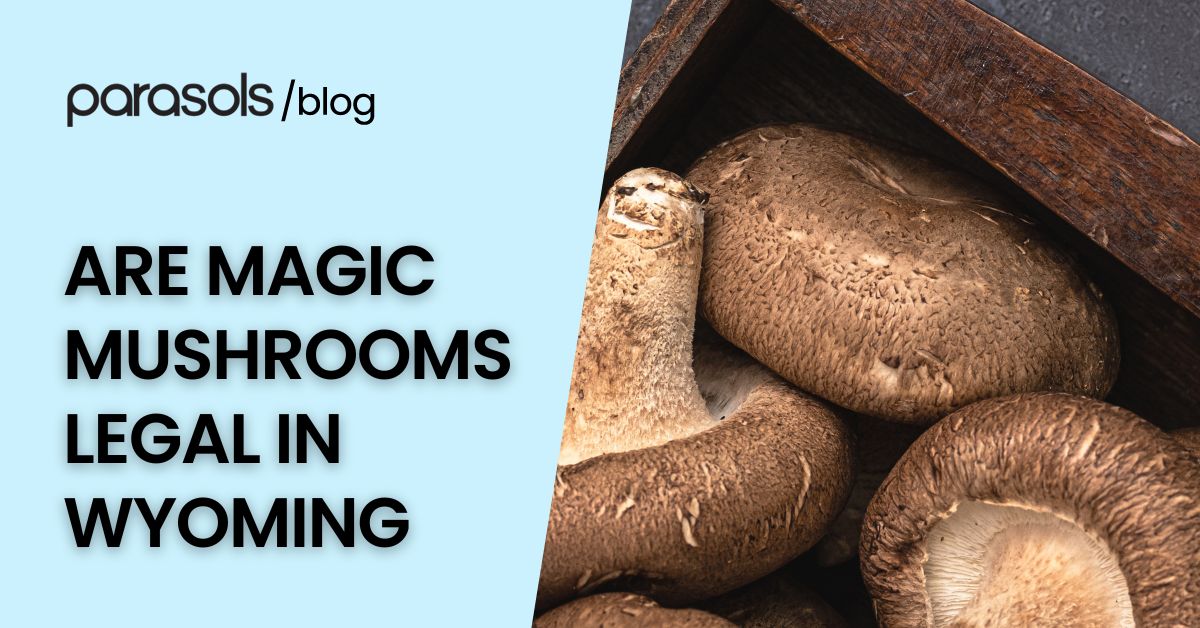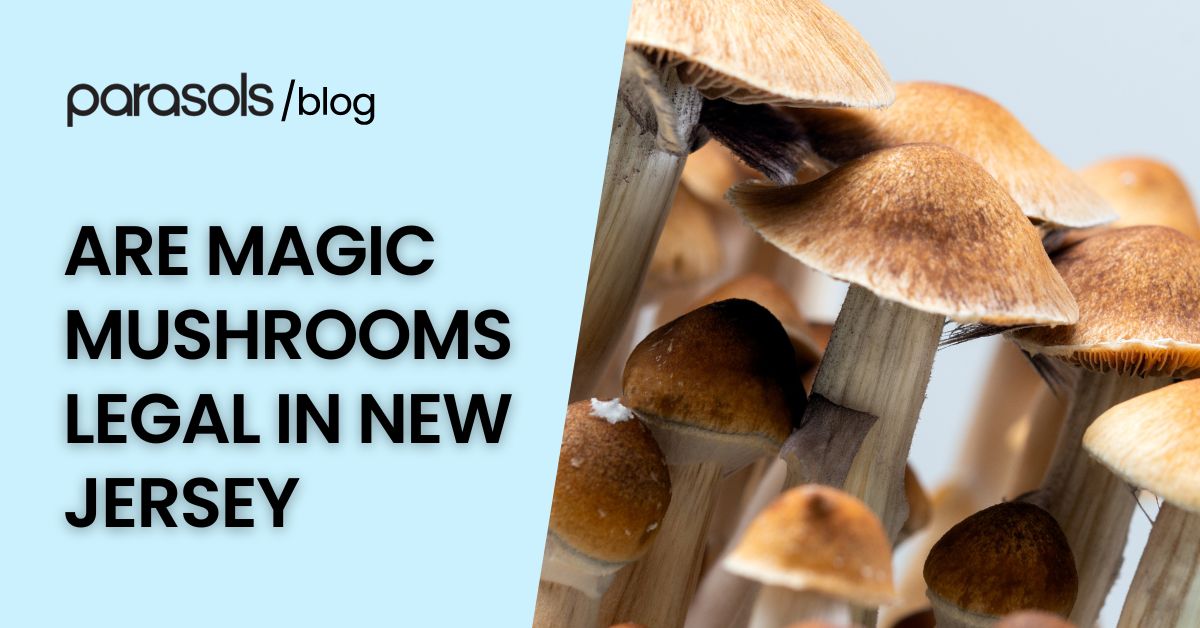Figuring out the legal status of magic mushrooms in New Hampshire isn’t always straightforward. While conversations about psychedelic substances and their potential therapeutic benefits are gaining more attention, many people are still unsure how state laws actually treat psilocybin mushrooms.
If you’re curious about where things stand — from personal use to broader discussions on therapeutic purposes — this guide breaks down the key points about psilocybin laws in New Hampshire.
Key Takeaways
- Psilocybin mushrooms remain illegal in New Hampshire under Schedule I classification.
- House Bill 528 proposes reducing first-time possession by adults to a civil offense with a small fine.
- Legislative discussions are ongoing, but no therapeutic access or decriminalization measures have been adopted yet.
Magic Mushrooms Summary
Magic mushrooms, often called psilocybin mushrooms, grow naturally but are far from ordinary. They contain psilocybin, a compound that can create powerful hallucinogenic experiences. Lately, there’s been a wave of new research studying how these mushrooms might actually help with mental health challenges like depression or post traumatic stress disorder. Many people see real hope in their potential therapeutic benefits.
Still, under federal law, psilocybin is classified as a Schedule I controlled substance — putting it in the same category as drugs considered to have no accepted medical use. In other words, despite the growing interest in their therapeutic purposes, magic mushrooms remain illegal at the national level.
Are Magic Mushrooms Legal in New Hampshire?

In New Hampshire, magic mushrooms are still grouped under Schedule I controlled substances. On paper, that means possessing, selling, or growing them is illegal and can carry criminal penalties.
In reality, though, most law enforcement agencies don’t put a lot of energy into chasing after small, personal possession cases, so it isn’t always treated as a top priority.
Meanwhile, across the country, more and more states are starting to look at psychedelic legalization or at least decriminalize possession, often highlighting potential therapeutic purposes. But here in New Hampshire, efforts like introducing a house bill or passing legislation around psilocybin use haven’t really taken off yet.
For now, the laws remain strict, even as the national conversation around psychedelics keeps gaining momentum.
Magic Mushroom Legality in Surrounding States
A quick overview: New Hampshire currently outlaws psilocybin, but neighboring states vary—some maintain strict prohibition while others are learning decriminalization or therapeutic programs.
- Massachusetts – Psilocybin is classified as a Class C controlled substance, so possession and use remain illegal. However, several municipalities (Cambridge, Somerville, Northampton, Easthampton) have decriminalized entheogenic plants locally. At the state level, a bill has been proposed that would legalize and regulate psilocybin for adults 21+ under a permit system.
- Vermont – Psilocybin is fully illegal, with strict penalties based on the amount possessed (up to 15 years in prison and $500,000 in fines for larger amounts). Vermont has created a Psychedelic Therapy Advisory Working Group to study therapeutic applications, and in 2025, lawmakers introduced a bill to decriminalize psilocybin mushrooms and establish a Psilocybin Therapeutic Consultation Program.
-
Maine – Psilocybin remains illegal, with personal possession classified as a Class D crime (up to 1 year in jail and $2,000 fine). In 2025, the state legislature narrowly passed—but later overturned—a measure to decriminalize small amounts. Portland, however, has enacted a non-arrest policy, making psilocybin law enforcement a low priority.
Current Legalities Surrounding Magic Mushrooms in New Hampshire
The legal status of psilocybin mushrooms in New Hampshire reflects the bigger national debate over drug policy, therapeutic use, and criminal penalties. While some states have already taken bold steps toward decriminalization or regulated access, New Hampshire has been more cautious — though that may be starting to shift.
Legislative Developments
One of the most notable moves came with House Bill 528, introduced by Rep. Kevin Verville. Instead of treating first-time possession by adults (21 and older) as a crime, the bill suggests making it a civil offense with a fine of up to $100.
In early 2025, the bill cleared the House and later advanced through the Senate Judiciary Committee, with some added amendments tying it to fentanyl sentencing reforms.
Governing Bodies
The main decision-makers here are the New Hampshire Legislature, the House Criminal Justice and Public Safety Committee, and the Senate Judiciary Committee. Law enforcement agencies still enforce existing psilocybin laws, but when it comes to small, non-violent cases of personal possession, there’s often some discretion in how strictly those rules are applied.
Outlook
Right now, psilocybin is still illegal in New Hampshire. There’s no approved medical use or therapeutic access, but bills like HB 528 suggest that the door isn’t completely closed. The state may not be leading the psychedelic renaissance like Colorado or Oregon, but there’s a growing willingness to at least rethink the penalties tied to personal use.
For many, that feels like the first step toward a bigger conversation about how psychedelics fit into both public safety and mental health.
Alternatives to Magic Mushrooms in NH

For those seeking therapeutic or mental health support in New Hampshire, there are legal alternatives to psilocybin mushrooms that may offer help through regulated channels.
- Medical Marijuana: Available to qualifying patients under New Hampshire’s medical cannabis program for conditions such as PTSD, chronic pain, and anxiety.
- Traditional Therapy: Licensed counselors and psychologists provide evidence-based treatments like cognitive behavioral therapy (CBT) for depression, anxiety, and trauma-related conditions.
- Prescription Medications: Antidepressants, anti-anxiety medications, and other psychiatric drugs are legally available through healthcare providers to manage mental health conditions.
- Ketamine Therapy: Some clinics in nearby states offer legal, physician-supervised ketamine treatments for depression and PTSD; access in New Hampshire is limited but expanding.
- Mindfulness & Meditation Programs: Non-pharmacological approaches, including meditation, yoga, and mindfulness-based stress reduction (MBSR), are widely accessible and often used alongside other treatments.
-
Support Groups & Peer Networks: Organizations such as NAMI New Hampshire offer peer-led support and education for individuals and families dealing with mental health challenges.
Final Thoughts
Psilocybin mushrooms are still illegal in New Hampshire, but the conversation around them is changing. With shifting public attitudes and proposals like House Bill 528 making their way through the legislature, it’s clear that the legal landscape could look very different in the coming years. For now, the best thing you can do is stay informed, study legal therapeutic alternatives, and keep an eye on how state lawmakers handle these discussions.
Want to stay updated on psilocybin laws and other developments in New Hampshire? Click here to follow the latest updates.
Frequently Asked Questions
Can you grow magic mushrooms at home in New Hampshire?
No. Growing psilocybin mushrooms at home is illegal in New Hampshire. Under current state law, cultivation is treated much like possession or distribution, which means it can lead to serious penalties.
Are there any cities in New Hampshire that have decriminalized magic mushrooms locally?
Not at this time. No city or town in New Hampshire has chosen to decriminalize psilocybin mushrooms on its own. The legal status is still set and enforced at the state level.
Is it legal to buy magic mushroom spores in New Hampshire?
Spores themselves may be sold for things like research or microscopy, but the moment they’re used to grow psilocybin mushrooms, it becomes illegal. Cultivation is considered a criminal act and can result in charges.
Can I travel through New Hampshire with magic mushrooms if they’re legal in another state?
Unfortunately, no. Even if you legally obtained them elsewhere, possessing or transporting psilocybin in New Hampshire is against the law and can lead to criminal penalties.
Are there any clinical trials involving psilocybin in New Hampshire?
Currently, there are no active or publicly registered psilocybin clinical trials taking place in New Hampshire. Most research into psilocybin use and its potential therapeutic benefits is happening in other states or through federally approved programs.



Leave a comment
This site is protected by hCaptcha and the hCaptcha Privacy Policy and Terms of Service apply.